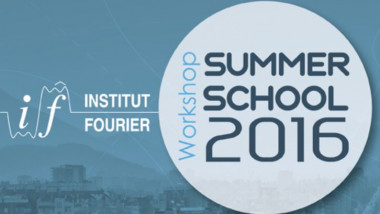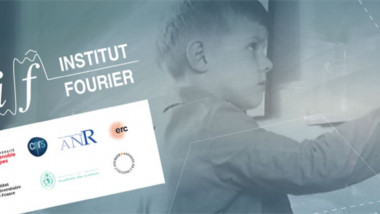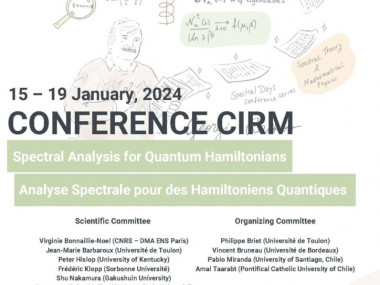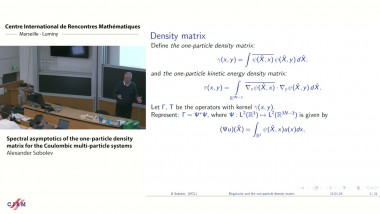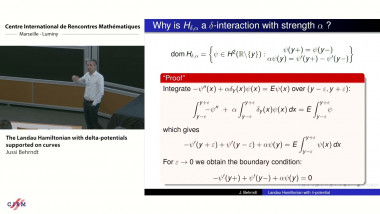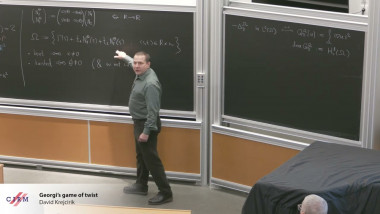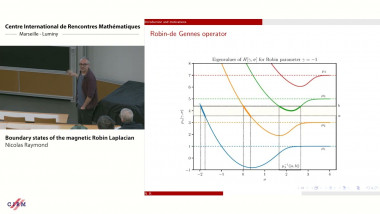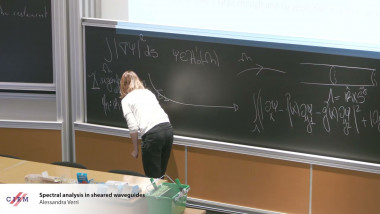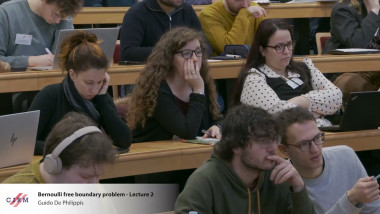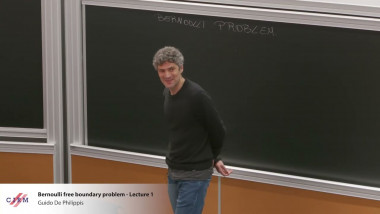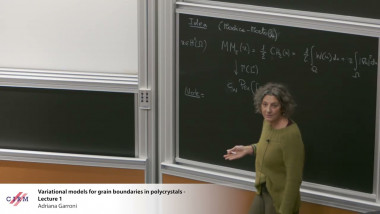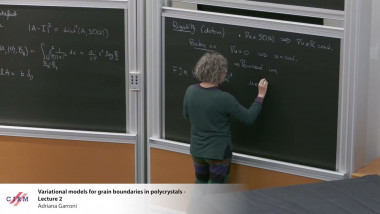Collection Spectral Analysis for Quantum Hamiltonians / Analyse Spectrale pour des Hamiltoniens Quantiques
The spectral theory of selfadjoint operators plays a fundamental role in Quantum Physics. The spectrum of a quantum Hamiltonian gives possible values of an observable, and the resonances theory provide important informations for the study of quantum evolution. The mathematical understanding of quantum Hamiltonians continues to progress for several decades. In particular, in recent years, motivated by the description of physical phenomena like the Superconductivity, the Quantum Hall effect or even study of materials such as Graphene, significant progress can be noted for magnetic Schrödinger operators, Dirac operators and Random operators.
For instance, after a rather complete description of the distribution of the eigenvalues for 2D magnetic Schrödinger operators, the analysis of scattering phenomena for the 3D case is progressed. In the semi-classical setting, the influence of the boundary on the spectrum is now better understood thanks to local (and microlocal) studies. Still, many questions on magnetic quantum Hamiltonians remain open. The normal forms and effective operators exhibited raise new mathematical questions. The consideration of relativistic phenomena and models of he physics of materials such as graphene leads to the study of the Dirac operator, for which new mathematical difficulties appear. The consideration of physical models taking into account the presence of impurities brings new problems which are treated by the theory of random operators. Due to its unusual and remarkable properties such as Klein tunneling and finite minimal conductivity, it has attracted great attention in recent years. Various groups of mathematicians and mathematical physicists have specialized on these topics and have produced already a good amount of important results.
The aim of this conference is to bring together leading experts and promising young specialists. We hope to stimulate the interaction of researchers from all these groups, researchers who have different approaches, points of view and knowledge of models. Bringing together specialists in various mathematical tools and colleagues focused on the physical models should help open up new perspectives.
Organisateur(s) Briet, Philippe ; Bruneau, Vincent ; Miranda, Pablo ; Taarabt, Amal
Date(s) 15/01/2024 - 19/01/2024
URL associée https://conferences.cirm-math.fr/2985.html
